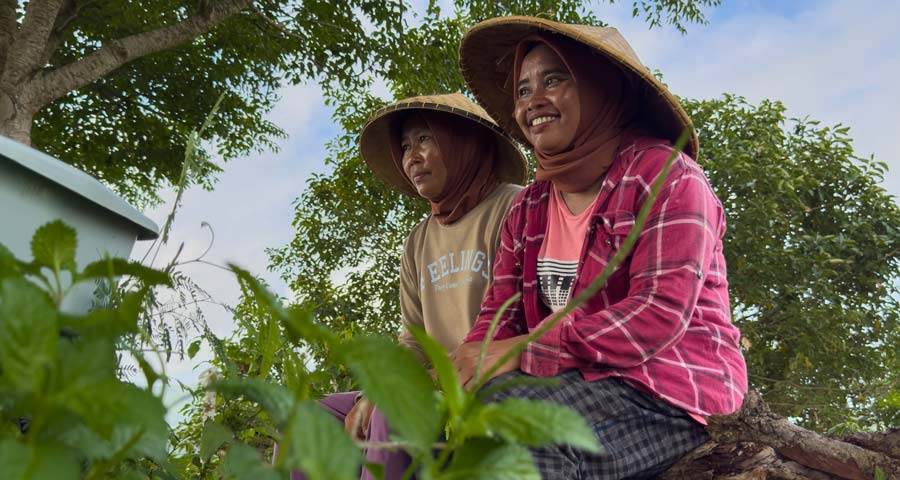
In South Lombok, a combination of deforestation, increased development, and a boom in tourism have disrupted the harmony between village communities and the biodiversity of local ecosystems.
The repercussions of climate change – including rising temperatures, erratic weather patterns, and environmental degradation – are disproportionately felt at the local level, particularly by communities reliant on natural resources. In lowland areas, monsoons cause extensive flooding, which jeopardises long-term food security and agricultural productivity. Local, marginalised communities are dependent on fragile agricultural systems and dwindling forests, and the resulting loss of income and a decline in staple food production exacerbate their vulnerability.
In response to these challenges, urgent action must be taken.
The not-for-profit Selo Footprints Foundation, in collaboration with local forest farmers, are endeavouring to restore local landscapes through regenerative agroforestry models and ecology-based tourist activities that actively involve the local community. Our objective is to bolster the resilience of businesses and communities to climate-related risks, and foster ecological rejuvenation for enhanced social, economic, and environmental benefits.
Central to this initiative is establishing a Demonstration Plot for regenerative agroforestry practices, which will serve as a model for sustainable land management. Integrated waste management and nursery facilities will be concurrently developed to address environmental concerns and support ecosystem restoration efforts. Additionally, community workshops on agroforestry and eco-tourism will empower local residents, while post-harvest training and facilities will optimise agricultural productivity and value chains.
The collaborative nature of this endeavour underscores our commitment to ensuring the program’s security and success. By engaging stakeholders at multiple levels, we aim to scale these initiatives to depleted neighbouring forests and promote broader ecological resilience and sustainable livelihoods.
Key Areas of Investment
- Establishment of a Regenerative Agroforestry Demonstration Plot
- Development of Integrated Waste Management and Nursery Facilities
- Development of a Learning Centre for Agroforestry and Eco-Tourism training
- Provision of Post-Harvest Training and Facilities
